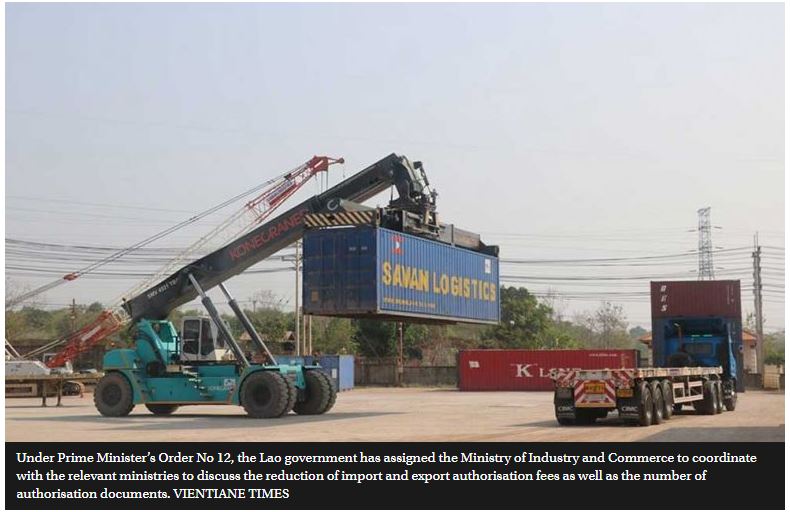Laos striving to facilitate imports, exports
The Lao government has renewed efforts to reduce administrative barriers in the import and export of goods, hoping to improve the business climate, under a new prime minister’s order.
The order, which was uploaded on the Official Gazette website last week, also aims to make it easier for local and international traders to transport their goods via Laos to third countries as Laos transforms itself from a land-locked nation to a land link within the Mekong region.
Under Prime Minister’s Order No 12, which the premier signed on October 16, 2019, the government has assigned the Ministry of Industry and Commerce to coordinate with the relevant ministries to discuss the reduction of import and export authorisation fees as well as the number of authorisation documents.
The government is calling for a reduction of at least 50 per cent in the current import and export authorisation fees as well as a 30 per cent cut in import and export authorisation documents. The timeframe for project implementation is 2022.
However, a reduction in non-tariff barriers should not mean loosening control of quality checks on imported and exported goods. In this connection, the authorities must have a proper mechanism in place to ensure that imports and exports are safe for consumption and the environment.
To provide better services for traders in need of import and export permits, the authorities must publicly inform traders which documents they must submit in order to obtain permission to import or export goods.
If traders do not provide all the required documents, the authorities must immediately inform them so they can submit all of the documents, according to the prime minister’s order.
This means the authorities have no right to delay the granting of import and export permits if traders provide correct and sufficient documents.
To facilitate the payment of fees for import and export authorisation, the government assigned the Ministry of Finance to coordinate with other ministries to create an electronic payment system.
In relation to the transport of goods within Laos, the government assigned the Ministry of Agriculture and Forestry to coordinate with local authorities and relevant sectors to discuss how to facilitate the flow of agricultural produce in the country.
Many pig farmers have told Vientiane Times that they faced difficulties and sometimes heavy fines from authorities while transporting animals from the provinces to Vientiane, where the demand for pork is highest.
They said it was unreasonable to be burdened with so many restrictions. In response to these complaints from farmers, agriculture officials said farmers needed permission to move live animals in order to prevent the spread of disease.
VIENTIANE TIMES/ASIA NEWS NETWORK


 English
English




